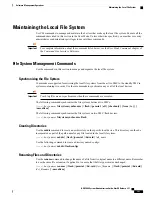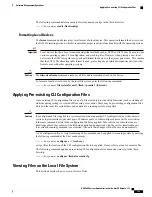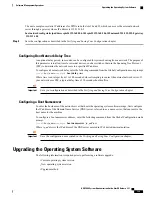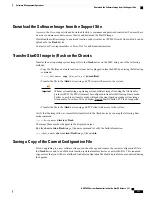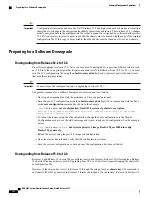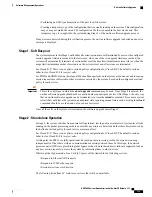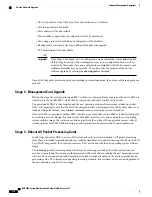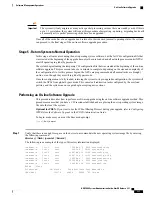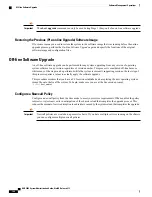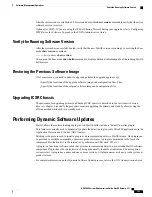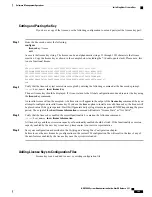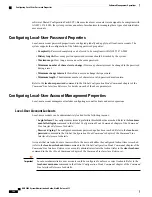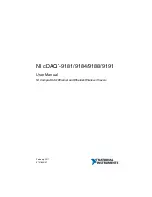
•
Performing an SMC synchronization of the new local file system.
•
Creating a temporary copy of the configuration that is currently running on the system. This configuration
may or may not match the saved CLI configuration file that is named in the boot stack entry. This
temporary copy is re-applied to the system during Stage 5 of the on-line software upgrade process.
If any errors are detected during this verification process, the on-line software upgrade is aborted and an error
message is displayed.
Stage 1 - Soft Busy-out
The system remains in this Stage 1 until either all current sessions are self-terminated by users or the configured
session upgrade limits are reached. In the latter case, when one of the two upgrade limits are reached, the
system will automatically terminate all sessions that meet the time limit (maximum session life) or, when the
usage limit (minimum number of sessions) on the system is met and all sessions are terminated.
For Closed R-P: There is no explicit overload policy configuration for Closed R-P. The default overload
behavior for Closed R-P is to reject calls.
For PDSN and GGSN: During this stage, all Session Manager tasks on the system are busied out and incoming
session requests are redirected to other systems or rejected by the system, based on the configured overload
policy for each service.
This is the only stage in which the
abort upgrade
command may be used. Once Stage 2 is entered, the
on-line software upgrade should not be cancelled unless an emergency exists. After Stage 1, the only way
that an on-line software upgrade can be terminated is to issue the
reload
command. This causes a system
restart that could leave the system in an abnormal state, requiring manual intervention. Issuing the
reload
command should be avoided, and only used as a last resort.
Important
Once all the calls on the system are terminated, the software upgrade enters Stage 2.
Stage 2 - Stand-alone Operation
In stage 2, the system switches from normal call operations, leaving only a minimal set of system-level tasks
running on the packet processing cards to ensure that any errors are detected and that the re-directors used by
the defined overload policy for each service remain in effect.
For Closed R-P: There is no explicit overload policy configuration for Closed R-P. The default overload
behavior for Closed R-P is to reject calls.
At this point, the SMCs are fully operational, but each packet processing card in the system is running
independently of the others, with no communications occurring between them. In this stage, the network
processor units (NPUs) are placed into global bypass mode, wherein the redirector tasks are supported to deny
any new session requests to access the system by redirecting them to other devices.
While in global bypass mode, Line Card (LC) ports will be limited to the following services:
•
Respond to Ethernet ARP requests
•
Respond to ICMP echo requests
•
Session rejections or redirection
The following list defines LC features or services that will be unavailable:
ASR 5000 System Administration Guide, StarOS Release 21.1
135
Software Management Operations
On-Line Software Upgrade
Summary of Contents for ASR 5000
Page 26: ...ASR 5000 System Administration Guide StarOS Release 21 1 xxvi Contents ...
Page 316: ...ASR 5000 System Administration Guide StarOS Release 21 1 288 VLANs VLAN Related CLI Commands ...
Page 400: ...ASR 5000 System Administration Guide StarOS Release 21 1 372 Engineering Rules ECMP Groups ...

